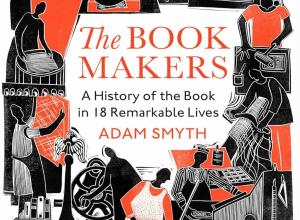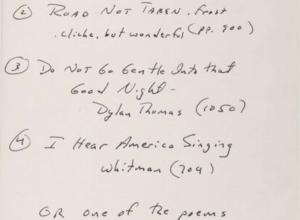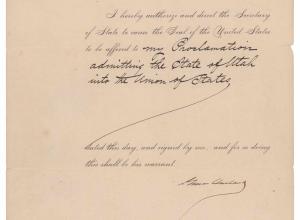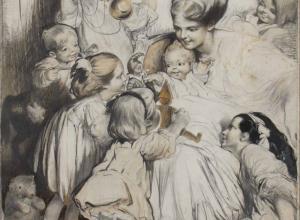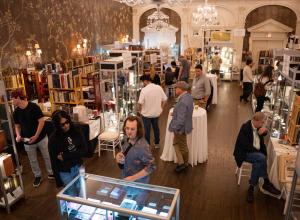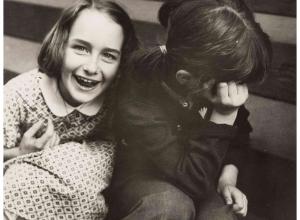Photography Archive of Shawn Walker Acquired by Library of Congress
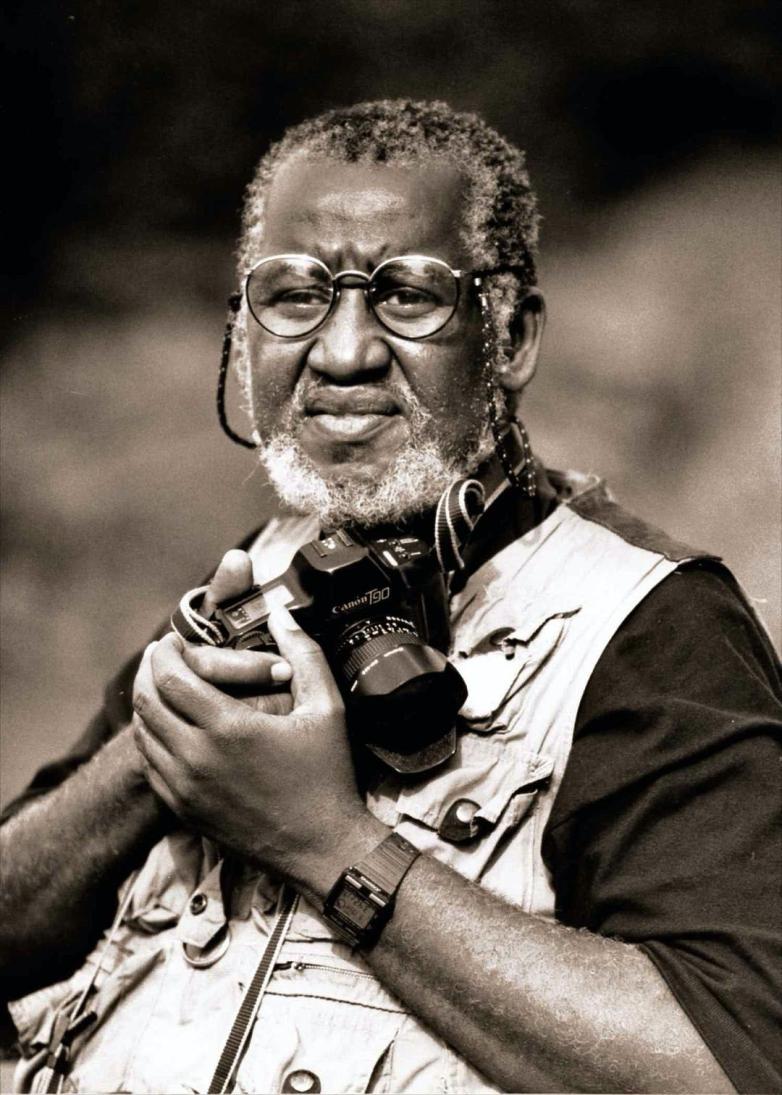
Photographer Shawn Walker's archive of images, ephemera and audio recordings was acquired by the Library of Congress.
Washington, D.C. — The Library of Congress has acquired the archive of photographer Shawn Walker and his collection of photos, ephemera and audio recordings representing the influential Kamoinge Workshop based in Harlem, the Library announced today.
Founded in New York City in 1963, the Kamoinge Workshop is a collective of leading African American photographers, such as Anthony Barboza, Louis Draper, Adger Cowans, Albert Fenner, Ray Francis, Toni Parks, Herb Randall, Herb Robinson, Beuford Smith and Ming Smith. Walker is a founding member and also served as an archivist, helping to preserve the group’s history.
The Shawn Walker archive contains nearly 100,000 photographs, negatives and transparencies depicting life in Harlem — a pivotal crossroad of African diaspora culture — between 1963 and the present. The Kamoinge collection — generously donated by Walker — consists of nearly 2,500 items, including prints by Kamoinge members such as Barboza, Draper, Smith and others. The Library of Congress worked with the Photography Collections Preservation Project to acquire both the Walker archive and the Kamoinge collection with an electronic finding aid. These materials will join the Library’s other important collections of photography by African Americans such as Gordon Parks, Robert McNeill, Roland Freeman, Dawoud Bey and Walker’s mentor, Roy DeCarava.
“We are very pleased to celebrate the addition of these two important collections to the Library’s extensive representation of African American life in the United States, from photography’s earliest formats to the present day,” Librarian of Congress Carla Hayden said.
Walker’s collection is the first comprehensive archive of an African American photographer to join the national library, which has collected photographs by African Americans for more than 100 years.
About Photographer Shawn Walker
Born and raised in Harlem, Walker learned photography at a young age by practicing with his uncle, Herbert Hoover Winfield. Encouraged by his mother, Florine Winfield Walker, he earned a B.F.A. from Empire State College and made photography his life pursuit. For more than 50 years, he photographed life in Harlem and surrounding areas. He taught at New York University and the International Center of Photography and lectured widely.
"A lifetime resident of Harlem, I have tried to document the world around me, particularly the African American community, especially in Harlem, from an honest perspective so that our history is not lost,” Walker said. “I am pleased that both my own photographic artwork and also some of the materials I have collected in my role as a cultural anthropologist will have a permanent home in an institution that will make them available to the public. I am so satisfied that this work has found a home in such a prestigious institution and can finally be shared with the world."
Walker’s images depict scenes of daily life, city streets, parades and celebrations, poverty, drug use and policing, among other subjects. Walker made photographs of African American political leaders such as Jesse Jackson, David Dinkins and Elijah Muhammad, and cultural icons like Maya Angelou, Spike Lee, Toni Morrison, Dizzy Gillespie and Thelonious Monk.
Walker traveled outside of New York, photographing in cities throughout the United States, including Chicago, Los Angeles, Miami, Oakland and San Francisco. He photographed New Orleans following Hurricane Katrina in 2005. He also photographed abroad in places like Cuba, Guyana, Nigeria, Senegal and Mexico.
About the Kamoinge Workshop
The Kamoinge Workshop came together in 1963 in response to racial discrimination against black photographers by mainstream publications. The word “Kamoinge” means “a group of people acting and working together” in Gikuyu, the language of the Kikuyu people of Kenya.
Senior members like Draper and DeCarava mentored the younger generation, providing guidance in the darkroom, business advice and other kinds of support. The collective organized exhibitions; it also self-published a series of annuals to publicize members’ work and respond to misrepresentations of black life in the mainstream press.
“I collected these materials over the years since joining Kamoinge as a founding member (with the least amount of photographic experience) in 1963,” Walker said. “Kamoinge was my Sorbonne, with my introduction to and discussions and lessons on film and printing, photography, jazz, painting, literature and the other arts.” The book “Timeless: Photographs by Kamoinge” (2015) brought together work that met the vision of another founding member, Draper, who said, “We speak of our lives as only we can.”
This year the Virginia Museum of Fine Arts in Richmond has organized a major exhibition about Draper and the Kamoinge Workshop that includes photography by Walker and 14 other early members of the collective. Following its time in Richmond, the exhibition will travel to the Whitney Museum of American Art in New York City. Previously, Walker’s work was exhibited at the Smithsonian Institution, the Brooklyn Museum, the International Center of Photography, the Studio Museum in Harlem, the San Francisco Museum of Modern Art and other cultural institutions.
About the Library’s Photography Collections
The Library of Congress holds an immense photography collection that is international in scope but particularly rich in depicting the history of the United States from the dawn of photography, as well as the lives, interests and achievements of the American people.
Among the more than 16 million pictures in the Library’s Prints and Photographs collections, only a handful were created by members of the Kamoinge Workshop prior to this acquisition. Completed through both gift and purchase, the acquisition marks a significant addition to the representation of African Americans’ visual culture from the past 50 years by leading African American photographers.
The Walker collection helps the Library expand its role as a leading institution for the study of African American visual culture. It builds upon the visual materials from the NAACP records and the McNeill family collection documenting 200 years of African American leadership, as well as smaller holdings by other photographers.
The Shawn Walker Photography Archive will become part of the Prints and Photographs collection. After the archive is further organized, it will be available for research and served by appointment. Selections from the collection will also be digitized. Walker maintains rights to his images during his lifetime and that of his wife.






